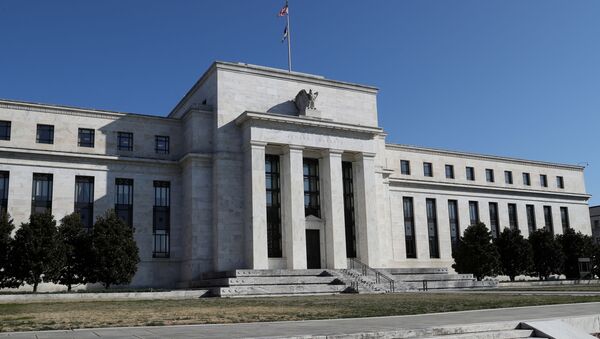Last week, the US Federal Reserve revealed that the worst has yet to come in regard to the declining American economy and the subsequent unemployment rate. According to economists at the Federal Reserve’s St. Louis, Missouri, branch, the total employment reductions will hit 47 million by the end of 2020’s second quarter, which runs from March 1 to June 30.
This number translates to a 32.1% unemployment rate.
“These are very large numbers by historical standards, but this is a rather unique shock that is unlike any other experienced by the US economy in the last 100 years,” economist Miguel Faria-e-Castro wrote in the St. Louis Fed’s research paper.
However, Faria-e-Castro highlighted that one could argue that the duration of unemployment, rather than the rate alone, is a more important metric to judge how the country is economically impacted by the pandemic. He also noted that those employed in “sales, production, and food preparation and services” occupations are at the highest risk of being let go.
Just last week, Treasury Secretary Steve Mnuchin spoke with CNBC and claimed that the new reports on the millions of jobless Americans weren’t “relevant.” Estimates at the time reflected that approximately 3.28 million new unemployment claims had been filed in just the preceding week.
“To be honest, I think these numbers right now aren’t relevant whether they’re bigger or shorter in the short term,” Mnuchin told CNBC’s “Squawk on the Street” on March 26.
“So now with these plans, small businesses hopefully will be able to hire back a lot of those people,” he added, referring to the then-proposed $2.2 trillion relief bill that was later signed into law by US President Donald Trump on Friday.
A number of city and state governments have been stepping up their prevention measures recently. New York City, a hotspot for the novel coronavirus, has begun implementing fines ranging from $250 to $500 for those who are found congregating in public. New York City Police Department officers will also be patrolling public transit to enforce social distancing.
"I understand people are trying to get somewhere, but no one should be getting on a crowded train," said New York City Mayor Bill de Blasio, as reported by The Gothamist. "But the PD [police department] is going to go out there, if they see any overcrowding, they are literally split it up, pull people off the train, moving along into different cars, whatever it takes.”
While discussing unemployment with CNBC, Mnuchin advised Americans to get out and look for new jobs amid the pandemic.
“And, by the way, you know, lots of big companies do continue to hire, for obviously grocery stores, pharmacies, you know, delivery services. These companies are on overtime, so I know they’re hiring people as fast as they can,” he said, despite the fact that such jobs, and the commutes to the businesses, put one at a higher risk of contracting COVID-19.


